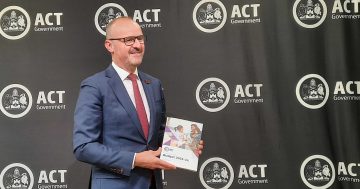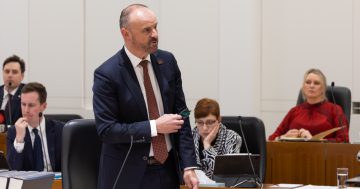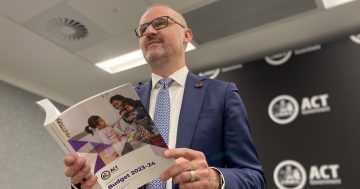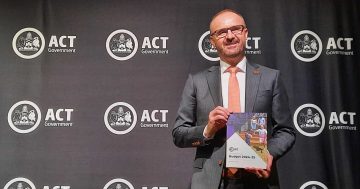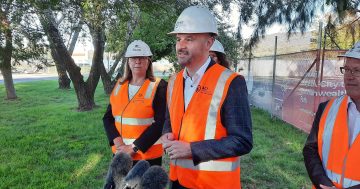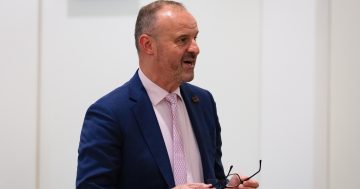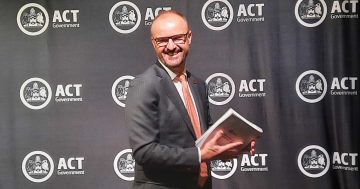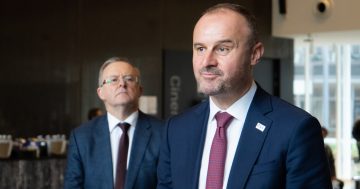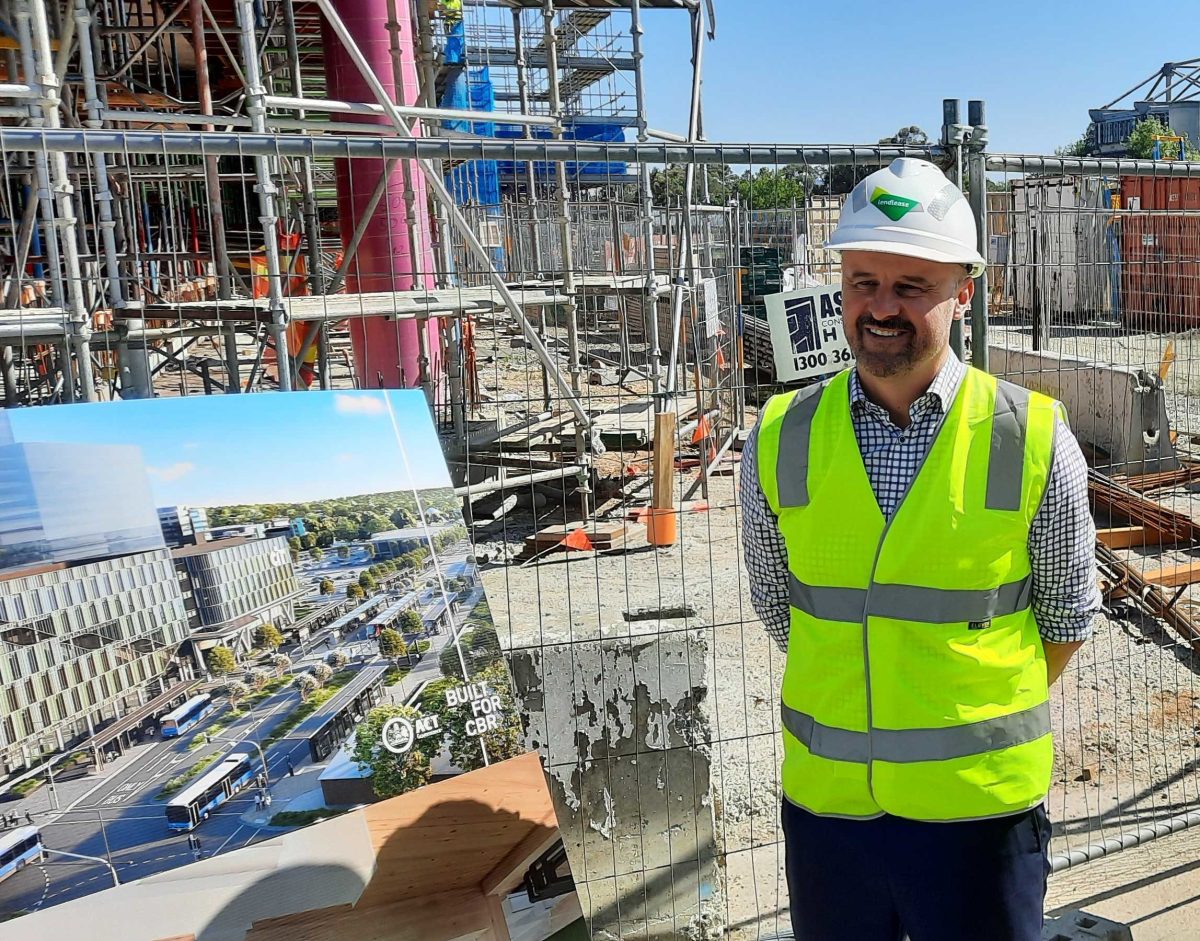
It’s going to be a hi-viz, infrastructure election: Chief Minister Andrew Barr on the Woden CIT site. Photo: Ian Bushnell.
A deteriorating budget bottom line will test Chief Minister Andrew Barr’s economic credentials in an election year, but he remains committed to offering cost-of-living support and delivering his big-picture infrastructure program.
Mr Barr told Region the slowdown in spending due to higher interest rates and inflation meant GST payments, the most significant component of Commonwealth funding, would be reduced, and payroll tax had slumped dramatically due to a $3 billion cut to APS spending on consultancies.
But the bigger-than-expected deficit would be temporary, with the budget returning to balance and then surplus over the forward years, especially with an improving outlook as inflation falls, the revised tax cuts commence in July and with interest rate cuts expected in the second half of the year.
“So we’ve got some revenue hits, but they’re not anticipated to be permanent,” he said.
Measures to help Canberrans struggling with the cost of living also had an impact, but Mr Barr said shoring up the bottom line would only come at the community’s expense.
“I think people would accept, given the household economic circumstances, the government running a surplus at the moment would be taking even more out of their pockets to make the government’s bottom line look better,” Mr Barr said.
Nor was he focused on regaining the ACT’s coveted AAA crediting, which all jurisdictions bar the resources-blessed WA lost after COVID.
“Ultimately, the question here is, is that the most important metric, and I’m not going to mount the argument that, OK, no more infrastructure spending, no more infrastructure projects for the sake of a credit rating,” Mr Barr said.
The temporary slump in revenue also did not mean there would be any skimping on projects.
He said the ACT was at a point where projects that were a once-in-a-50 or 100 years spend needed to be built, including the Canberra Hospital expansion, due to open conveniently before the election in October, the Northside Hospital, the Woden CIT, opening in 2025, the Canberra Theatre redevelopment, light rail, a stadium, convention centre and live music venue.
“They can’t all be built in one parliamentary term or year, but clearly, they will need to be over the next 10 years,” Mr Barr said.
He said most voters wanted to know the pipeline and that the government had a plan.
“People will be in no doubt about what we have done and what we intend to do and how it fits in with a longer-term plan.”
Mr Barr also sees a window of opportunity with a Labor government under Anthony Albanese on Capital Hill, as most of these projects would benefit from Commonwealth assistance.
He said Mr Albanese was the most engaged Prime Minister regarding the national capital for a generation and had already delivered under the National Capital Investment Framework with the first tranche of light rail funding.
It is no secret that Labor’s 2022 election victory energised Mr Barr, who is now committed to the next four years at least to see through projects or get them underway.
“For a lot of people, the magic number is 55 when they think about what comes next; that tends to be a career-defining age, so that lines up pretty well with this next term,” he said.












